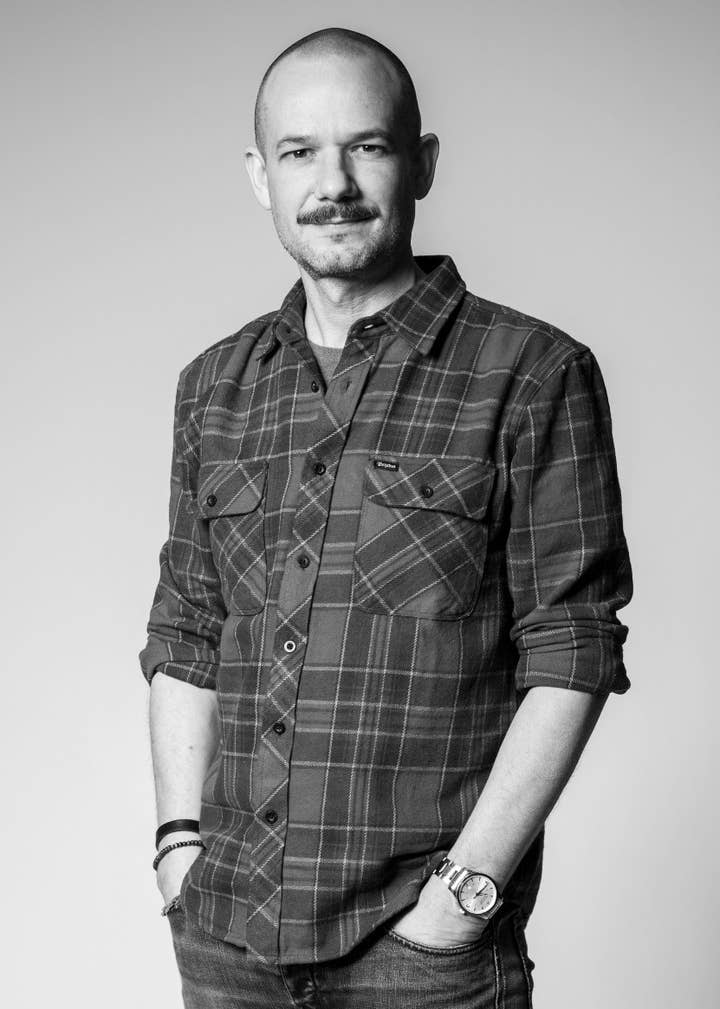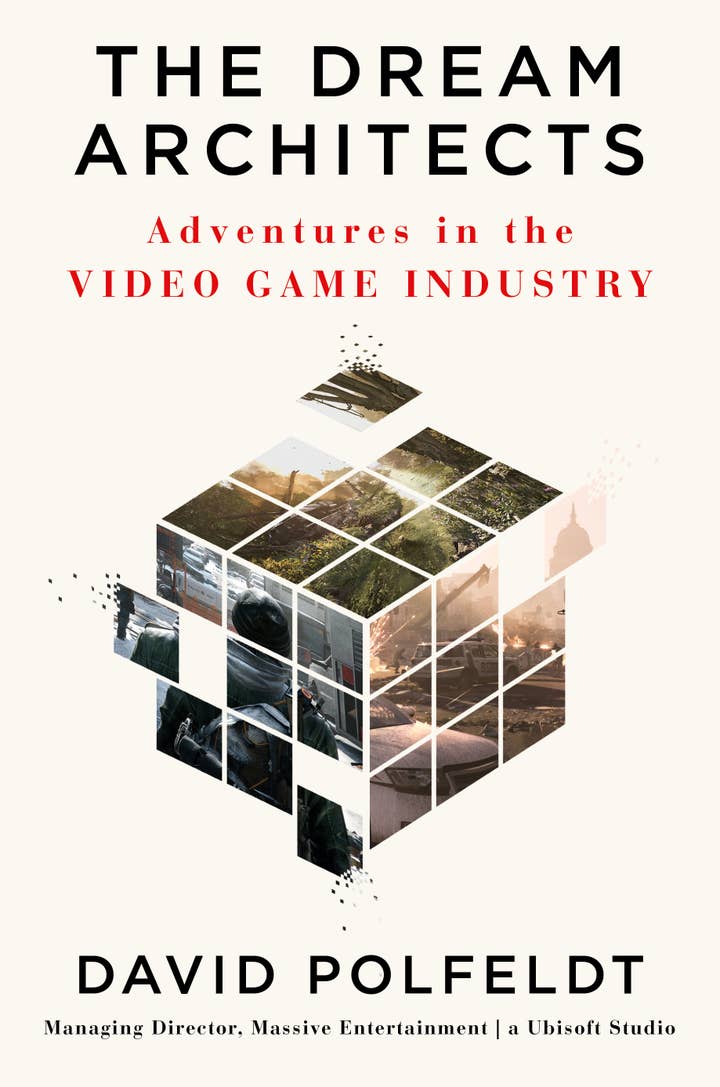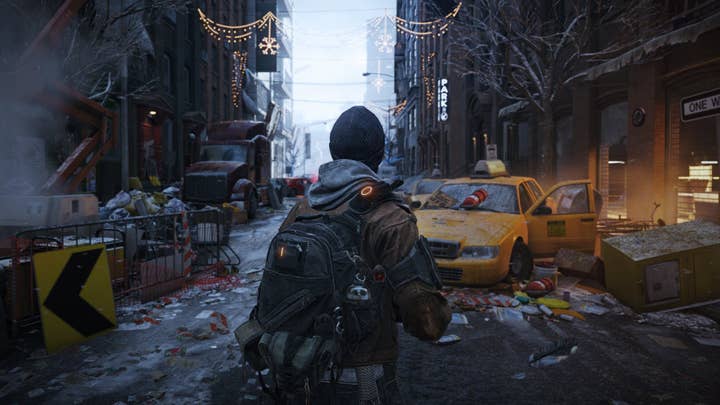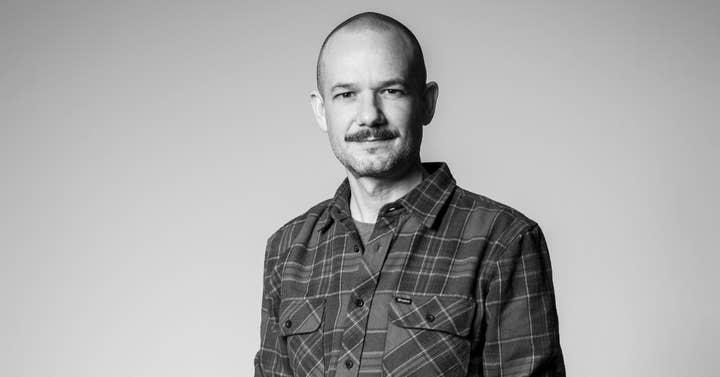The constant tug of war between AAA developers and "the money people"
Massive Entertainment boss David Polfeldt discusses the instability of AAA and the influence of self-inflicted crunch
David Polfeldt's debut book, The Dream Architects: Adventures In The Video Game Industry, offers a rare and surprisingly honest look at the pressures of AAA development -- but it only scratches the surface of how the process needs to evolve.
As he charts his career from a marketing and advertising agency in the '90s to the head of the studio behind The Division and the upcoming Avatar game, Polfeldt offers an opinion on areas in which games development and publishing can improve. Some, he tells GamesIndustry.biz, are still just as relevant today as they were for the periods he wrote about.
In a section set just a month after he joined Massive in 2005, he notes that the best-selling games were all sequels, and a new generation of consoles had arrived where "the hype revolved more around lighting technologies and... lifelike characters than anything substantial like genre innovations and new gameplay ideas."
Fast forward 15 years and sequels still dominate the charts, with the imminent arrival of Xbox Series X and PlayStation 5 yet to demonstrate anything as revolutionary as some might hope. There have been advances during the last decade and a half, of course -- such as the rise of Fortnite and PUBG -- but by and large the industry can be "a bit cyclical."

"We seem to always come back to that phase I described right there, where it's really just a bunch of sequels with better varnish on top," says Polfeldt. "That's what sells for a year or two, but then -- thank God -- some new kid on the block comes along that really changes the way we think about games. But then we go back into stagnation."
The cycle, he says, is driven primarily by "the constant tug of war between dreamers who want to create new entertainment experiences, and the fact it's become big business."
"If you think about it from the money perspective, you'd rather have a sequel," he acknowledges. "It's more predictable, stable, a better return on investment. New brands and innovations are incredibly frightening for someone who wants predictability on the financial side. But I want more difficult and new challenges that excite me as a creative."
It's a tug of war the publishers often win, if only due to the fact that games do have to eventually ship. Polfeldt described the atmosphere when a 'closer' is sent in to ensure a project reaches the finish line -- you can read this excerpt here.
That said, Polfeldt believes the "mood swing from art to commercial" is actually vital to propelling the industry forward, adding: "That tension is like a creative battery. You have the plus side -- obviously the creatives -- and the minus side -- obviously the money people. Between them you get a really interesting dynamic that is Darwinistically productive for what we're doing.
"Out of that tug of war, some people are able to step above and create something really new and different."
"Sequels sell for a year or two, then some new kid on the block really changes the way we think about games. But then we go back into stagnation"
He offers the example of Renaissance artist Michelangelo, likening his painted ceiling in the Sistine Chapel to a game development project. In this case, the artist was the developer and the Pope was the publisher. There was a budget and a deadline, and yet Michelangelo still "found a way to push the boundaries of art."
"This is what some game developers have been able to do," he says. "And in the future, I think we'll see that more often, where a developer transcends the banality of commercial realities and creates something profoundly meaningful, even though it has to stay within the commercial context."
It will be no easy task, since Polfeldt recognises that publishers have become "more risk aware," particularly as budgets are so high and it can take up to five years to produce a AAA game -- "That's five years of risk," he adds. "It's very stressful for publishers to have to finance that."
As he observes at various places throughout the book, the biggest just keep getting bigger when it comes to AAA. The expectations and budgets continue to rise, leading to questions of whether this high-end production process is even sustainable. There have even been developers, including recently departed Ubisoft developer Michel Ancel, talking about creating the first AAAA games.
"AAA is enough," says Polfeldt. "We don't need AAAA or even more. Look at movie history -- there was a time when movies were getting bigger and bigger, with more actors and larger scenes. Ben Hur, that kind of movie. But it wasn't sustainable. It was just quantity, not quality. Eventually we got directors like Hitchcock, who weren't necessarily using bigger budgets than these super large movies, but used the medium's quality to create something that was probably even better. That's a phase the games industry will have to come to soon, because it's not sustainable for AAA to have budgets that keep on escalating."
For one thing, there is a limit to how long AAA development can continue this way -- a human limit. The Dream Architects includes chapters about the production of Far Cry 3, Assassin's Creed Revelations, The Division and other high-end projects, and a running theme is the toll it takes on the team.

Polfeldt writes of teams working ten-hour shifts, sleeping for two hours in the office, then returning to work. After The Division launched, Polfeldt suffered "a strange sort of post-partum depression" and a colleague "collapsed from exhaustion in an airport somewhere." Tales of crunch like this are nothing new to the games industry, but it's unusual to hear them directly from the head of a AAA studio.
The inclusion of these sections, Polfeldt says, was to add "a bit of greyscale" to the conversation around crunch. He believes most reports that emerge, particularly from anonymous sources, stem from situations where managers have forced teams to crunch -- "It's brutal and it's abuse," he says.
But what Polfeld is trying to get across is a self-inflicted form of overworking, driven by a passion for the craft and a desire to work on the biggest projects, to appear on the biggest stage.
"No one ever told me, no one ever asked me to work overtime in the games industry -- that came from within," he says. "You can call it a chip on my shoulder, or a need to prove one's self, but I think it's related to the self-image. Most people in the industry started as outsiders, believed they were nerds, were not cool or wouldn't get the coolest girl on campus. It's not true, but this is how I grew up seeing myself. I think I was chasing an update of my own view of myself as a successful person, as someone who had achieved great things and someone worth recognition."
And, by his own admission, it was ultimately somewhat fruitless. Polfeldt believed he would feel better about himself after the launch of The Division, the biggest and most ambitious game in Massive's history, but being successful "didn't feel as I expected it to." The self-image, he realises, is something no external influence can improve -- that, too, must come from within.
Meanwhile, Polfeldt's drive to overwork has potentially had wider implications, particularly on his own employees. As has been discussed before around crunch, select staff voluntarily dedicating more than their working hours to a project can instill a similar mindset in their colleagues, who come to believe it's expected that they crunch as part of a team effort.
"The machismo part of this industry needs to go away. It's become outdated and quite frankly games deserve better than that type of culture"
"You're right," Polfeldt admits. "What happens is together we create a community and a culture where these things get mixed up. I'm doing it for my own reasons, but you might be sitting next to someone who wants to go home but worries it's terribly important that we all work and doesn't want to be the odd person.
"The fear of not belonging is one of the most powerful human drivers. As soon as you have a majority of people in any group saying or doing anything, a lot of other people will just become and do the same out of fear of not being part of that group. So even though you have no intention of influencing anyone, you always do."
Although he doesn't elaborate, Polfeldt admits crunch cost him his marriage, something he takes responsibility for: "I can't blame it on anyone at all. Those were decisions I made because I believed they were important to me. So in a way it was almost egotistical to crunch."
He claims that Massive has now "almost entirely stopped doing overtime" because of the lessons learned on previous projects. In fact, he says younger members of the team are told managers would rather they complete their tasks by 5pm and go home than work until 8pm -- the latter potentially indicating they're "not quite the level of professional the studio would hope for."
The Dream Architects is a story of triumph over adversity, of the effort it takes to get the biggest games into players' hands. But it's hard not to come away thinking about the adversities rather than the triumphs, and it's surprising they are even included. While Polfeldt wrote this book independently, he still remains the head of a key Ubisoft studio -- did the publisher approve of this potentially revealing memoir?

Polfeldt reports that CEO Yves Guillemot personally told him to write it the way he wanted to, although the Massive MD voluntarily showed it to corporate communications in the publisher's Paris headquarters. Their only caution was that it might give away a bit too much of what screenwriter Stephen Gaghan had planned for The Division movie.
"It has been necessary for the games industry to be exposed so we can look ourselves in the eye and ask ourselves what we're really doing, the habits we have and the ones we should abandon"
This lack of concern for scrutiny is particularly surprising given recent events at Ubisoft. In July, allegations began to emerge across the industry of abuse, harassment and other forms of misconduct from key employees, right up to senior management.
Two of the accused, Serge Hascoet and Pat Plourde, feature in the book and both are praised for their work. This summer, Hascoet faced multiple allegations of abuse -- and he has since stepped down -- and Plourde has also been accused of misconduct.
When asked about the situation, Polfeldt explained that his book was finished around the time of the first allegations, and said he had no knowledge of them when he wrote it. He adds that it's good these accusations have come to light.
"I don't believe in social media as a tool for anything complicated," he says. "But it has been necessary for the gaming industry to be exposed so we can look ourselves in the eye and ask ourselves what we're really doing, the habits we have and the habits we should abandon.
"When it comes to the allegations for all of these people, I've honestly absolutely not seen anything. So I was surprised, and I felt as naive and confused as a lot of other people. But I've been thinking about it a lot -- I was and am extremely focused on the craft of making games. I actually don't care about anything else in my job, and because of that I don't see other trends that are going on in the company. Just as I would ignore the budget, to the frustration of my managers, because there's no correlation between the budget and the quality of the game that you can use in a meaningful way."
"That tension is like a creative battery. You have the plus side - obviously the creatives - and the minus side - obviously the money people"
On Hascoet specifically, Polfeldt said he was a "really important figure for Ubisoft" and liked the fact he "was toying with norms and traditions, because it made me stop and think."
"Rather than just having a default predictable idea for a game, Serge would say, 'No, you can do better than that' and then he would have ways to make me think outside of the box," he says. "I really appreciated it because I thought it made me a better craftsperson. I guess that same behaviour in a completely different context could mean something completely different but it didn't even occur to me. That's the honest answer.
"I'm really, really sad for the people who have experienced that as overstepping boundaries or taking advantage of anybody. It's very confusing to me, I feel like I'm in the middle of a car accident, and I don't recognise many of the things that are being thrown out there -- so either they don't exist or I am very naive. I suspect the latter, actually. It doesn't line up with my experience and leaves me wondering, 'Am I stupid? How could I miss things that were apparently happening around me?'"
Ubisoft is not the only company to have faced such allegations, and the fact that toxicity and abuse can be found across the games business is partly due to "the immaturity of the industry," says Polfeldt. There is also the problem of machismo at play.
In the chapter describing the development of Assassin's Creed Revelations, Polfeldt describes meeting the team behind Ubisoft's flagship franchise, where "the number of people who had loud opinions was way beyond what was needed to terrify any sensitive creative spirit and silence them forever."
"I quietly decided that we would build our Massive ship differently, because I wasn't convinced that I liked everything I saw," the passage continues. "There was too much machismo there, too much aggressiveness."
Herein lies one final flaw with AAA development, and indeed the games industry in general -- what Polfeldt describes as the "romantification of ruthlessness."
"It makes me really angry, because it's so simplistic and childish," he says. "But you see it everywhere, in all of the studios and publishers -- this feeling that it's necessary or even cool to be tough. I don't believe that."
He returns to his Michelangelo example, suggesting there was no machismo or ruthlessness involved -- just a business arrangement and the magic of art.
"True magic happens when people feel safe, at least to some degree, and the risk should be on the creative side," he concludes. "How far can I push myself creatively as a craftsperson? That's where the risk should be, not in 'Will I get hurt if I don't succeed?'
"The machismo part of this industry needs to go away. It's become outdated and quite frankly games deserve better than that type of culture."
David Polfeldt photo credit: Oscar Näsström

